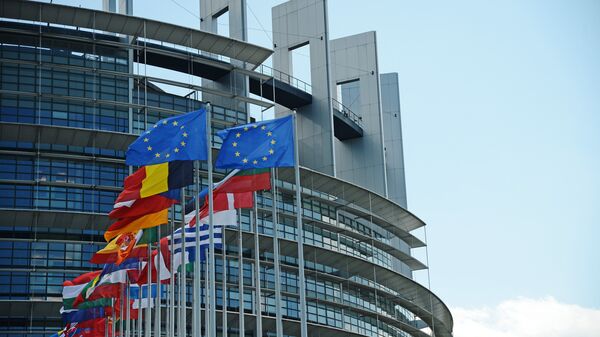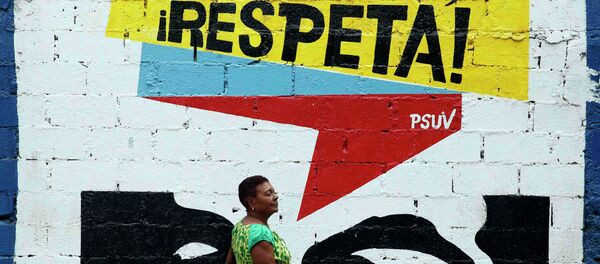"After the attempted coup in Venezuela, and taking into account the fact that the EU countries are now divided between those who support it and those who do not recognize this attempt, still considering Maduro as the only president, and also taking into account some radical positions, which were voiced by a number of these countries, I do not think that they are now neutral enough to be involved [in the mediation process]", the ambassador said.
From the very beginning, EU officials clearly stated that they do not want to act as a mediator, but wanted to help dialogue, she added. "It has been their position since last year," Caldera said, recalling EU initiative to create a contact group.
Fortunately, there are European countries supporting peace efforts, she said.
READ MORE: US Rejects Mexico, Uruguay, Vatican Mediation Efforts to Keep Maduro in Power
"There are those who follow Trump's position, and there are those countries that are taking the position of peace. Currently, the EU as a whole does not have a unified position on Venezuela. They are still conducting consultations, in particular, they are discussing this at the ministerial meeting today", the ambassador said.
Caldera noted that she had conducted a number of meetings to discuss the Venezuelan crisis in Brussels.
According to the ambassador, the whole world is now clearly divided between those joining the US position favoring military intervention and support of the current coup and those who oppose this approach and call for creating the conditions for resuming dialogue.
"Diplomacy and dialogue are the only ways to resolve the current situation in Venezuela", she said. She expressed hope that, given the recent events, the EU countries would change their positions and move toward supporting peace.
READ MORE: International Tensions May Put Extra Damper on Investing in Venezuela — Scholars
Earlier in the day, the European Parliament voted 439-104 for a non-binding resolution that recognized the self-proclaimed president Juan Guaido and urged the EU external action service to follow suit.
On Wednesday, an EU source told Sputnik that Brussels was ready to support the political process in Venezuela by creating an international contact group, and is now consulting with partners on this issue.
READ MORE: Coup Against Venezuela's Constitution – Self-Proclaimed President Guaido’s Envoy
At the same time, the European Commissioner for Crisis Response Christos Stylianides told the European Parliament that such a contact group was not intended to conduct a direct dialogue between the conflicting parties in Venezuela.
Some of the EU countries, including the UK, Germany, France, and Spain declared on Saturday their intention to recognise Juan Guaido as the country's interim president if Caracas does not announce snap presidential elections within eight days.
READ MORE: European Parliament Passes Resolution Recognising Guaido as Venezuelan President
President Maduro himself called Venezuela "the victim of a US conspiracy", referring to US Vice President Mike Pence promising Guaido "full American support" the day before he declared himself Venezuela's new head of state. Maduro also stressed that Venezuela had held legitimate elections and urged European countries to withdraw their demand.
Constitutionally elected Venezuela's President Nicolas Maduro accused Washington of orchestrating a coup in the country. Russia, China, Mexico, Uruguay, Iran and Turkey among other countries, have voiced support for Maduro as the only legitimate president of Venezuela.





